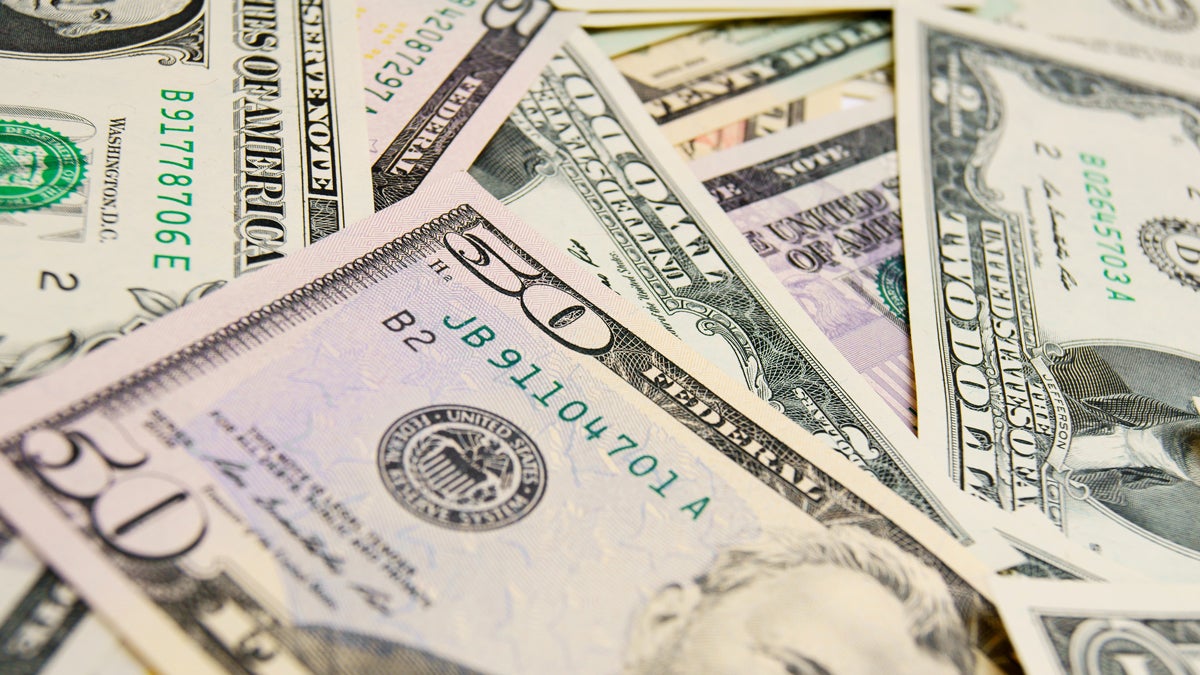US election campaigns distinguish themselves by wasting billions

(Image courtesy of Shutterstock.com)
In an election dominated by incendiary business moguls and family dynasties, one crucial topic has been largely overlooked — the amount of money that millionaires and corporations are providing for the presidential race.
I wondered just how much, and what I found is astonishing: More wealth could go towards presidential campaigning than the entire budget of the Environmental Protection Agency, or the nominal GDP of 65 countries. This uncontrolled spending needs to change.
Bloomberg News predicted as much as $10 billion will be spent on the 2016 presidential race by Election Day, up from over $6 billion in the 2012 election. As of July 31 — 15 months before the election — the total campaign funding raised by 20 presidential candidates and filed to the public domain equalled $423 million, according to The New York Times.
Is this an ethically sound strategy for attaining the most powerful job title in the world? Ultimately, it comes down to the current political climate and the influence of super PACs.
I do not think big money should have a place in politics, because I believe it leads to corruption and a minimized effort to govern for the people. So, when I see the billions of dollars given to presidential candidates, I wonder how that aid could not factor into the new president’s decisions. In Brazil, incumbent president Dilma Rousseff has been plagued by a corruption scandal derived from kickbacks and illegal donations during her 2010 and 2014 election campaigns. According to Reuters, she received the vast majority of campaign funds from corporations, who felt that their use of wealth gave them a voice in policymaking.
In an attempt to minimize the influence of corporations and millionaires in government, many Western nations, for example France and Japan, have instituted campaign-spending limits. According to The Guardian, the United Kingdom instituted a £33 million spending limit for each party, and CNN has stated that all political advertisements are banned from television in Norway.
Without spending limits, the United States runs the risk of emulating Brazil’s dilemma, and further distancing itself from the progressive election rules of Western Europe and Scandinavia.
Why are presidential campaigns preoccupied by capital? Proponents of mass spending and super PACs will say that the use of funds for advertisements and similar expenditures is necessary to inform the entire U.S. population. But these individuals do not see the inefficiency in the process. Voters should choose a nominee based on the politician’s beliefs, plans, and capabilities, which are expressed through speeches and debates. The money going towards sensationalist commercials that attack an opponent or ambiguously promote a candidate’s abilities seems wasteful, and constitutes a significant portion of campaign spending.
The current system of campaign spending was sustained by the prominent 2009 Supreme Court ruling in Citizens United v. FEC. A 5-4 majority decided that the First Amendment permits political spending and could not be restricted. The verdict has been met with considerable outrage. Former Supreme Court Justice John Paul Stevens stated that it “threatens to undermine the integrity of elected institutions across the nation.”
The $423 million raised thus far by candidates does not describe the extent of campaign spending. Because of the McCain-Feingold reform law passed in 2002, which allows companies and wealthy donors to provide capital to external groups, presidential candidates do not have to publish the entirety of their funding. As a result of this, $423 million can eventually become $10 billion by the end of the presidential race.
So what can be done to eliminate wasteful spending for the presidential election? The main culprits in this race are Jeb Bush and Hillary Clinton, aided by super-PACS that spend more money than Leonardo DiCaprio in The Wolf of Wall Street. Bush and Clinton raised $120 million and $68 million, respectively, through Aug. 1, according to The New York Times. The vast majority of those funds come from super-PACS, who are funded by a few of the richest individuals in the country. According to POLITICO, the 67 biggest financial donors account for $128 million of the super-PAC money utilized for the election so far. The only serious presidential candidate without a super-PAC is Bernie Sanders, the Democratic socialist rising in the polls on the weight of his message, rather than his wallet.
What does it say about our governmental policies when $10 billion goes towards national commercials and advertising campaigns, instead of causes like poverty, environment, and health? Many billionaires use their wealth to aid in humanitarian issues, including Bill Gates and Warren Buffet. The Koch brothers and Sheldon Adelson, on the other hand, buy influence. Candidates Clinton and Sanders have mentioned a reorganization of campaign regulations if elected, to hold corporations and millionaires in check and prevent corruption. So before you write that check or cast that ballot next year, think about more than the hyperbole; consider the real issues.
—
Noah Kauffman is a senior business administration major at Arcadia University.
WHYY is your source for fact-based, in-depth journalism and information. As a nonprofit organization, we rely on financial support from readers like you. Please give today.

